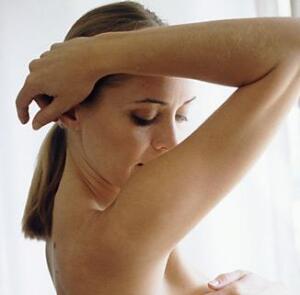by
Brendon Nafziger, DOTmed News Associate Editor | February 03, 2011
The rate of false positives from MRI breast screening drops almost in half when patients have earlier scans that can be used for comparison, according to a study published online this week and in the April print edition of the journal Radiology.
Researchers hope the results could help increase patient confidence in the tests.
MRI screening for breast cancer can often be better at picking up suspicious findings than conventional X-ray mammography, the study authors said, and is often considered cost-effective for certain women at high risk for the deadly disease. These include women with a personal or family history of breast cancer, or who carry the BRCA mutations.



Ad Statistics
Times Displayed: 60606
Times Visited: 1928 Ampronix, a Top Master Distributor for Sony Medical, provides Sales, Service & Exchanges for Sony Surgical Displays, Printers, & More. Rely on Us for Expert Support Tailored to Your Needs. Email info@ampronix.com or Call 949-273-8000 for Premier Pricing.
But many women and their doctors are put off by the exam because of its relatively high false-positive rate -- that is, it can have a hard time distinguishing between a harmless lesion and a cancerous one. This can lead to expensive further tests and biopsies in which no cancer is discovered.
But researchers with Brown University in Providence found if women had a previous MRI screening exam to compare new scans against, they had fewer anxiety-inducing false positives and recommendations for pricey, short-term follow-up tests.
"False positives are a risk of the breast MRI procedure, but the rate decreases following the initial round of screening," said study co-author Dr. Martha B. Mainiero, director of the Anne C. Pappas Center for Breast Imaging at Rhode Island Hospital and associate professor of diagnostic imaging at The Warren Alpert Medical School at Brown, in a statement.
A similar study from 2006 investigating MRI breast screening in women who already had a baseline, or initial, exam also found lower false-positive rates, but it was unclear if the results came about from the multiple exams or just from radiologists getting better with an unfamiliar technique, the researchers said in the paper.
"Now that screening breast MR imaging has become part of routine clinical practice, any differences in interpretation between a baseline MR imaging study and an MR imaging study with prior images for comparison would be useful to identify so that the likelihood of false-positive results for each group can be more accurately predicted," the authors wrote.
In the study, the researchers examined results from 650 screening tests performed between Sept. 2007 and Dec. 2008 at Rhode Island Hospital. All exams were done with a Siemens Symphony 1.5 Tesla MRI unit.
About half the results, 307, were the patient's first MRI breast screening exam, and the other half, 343, were follow-ups or part of an annual screening.

